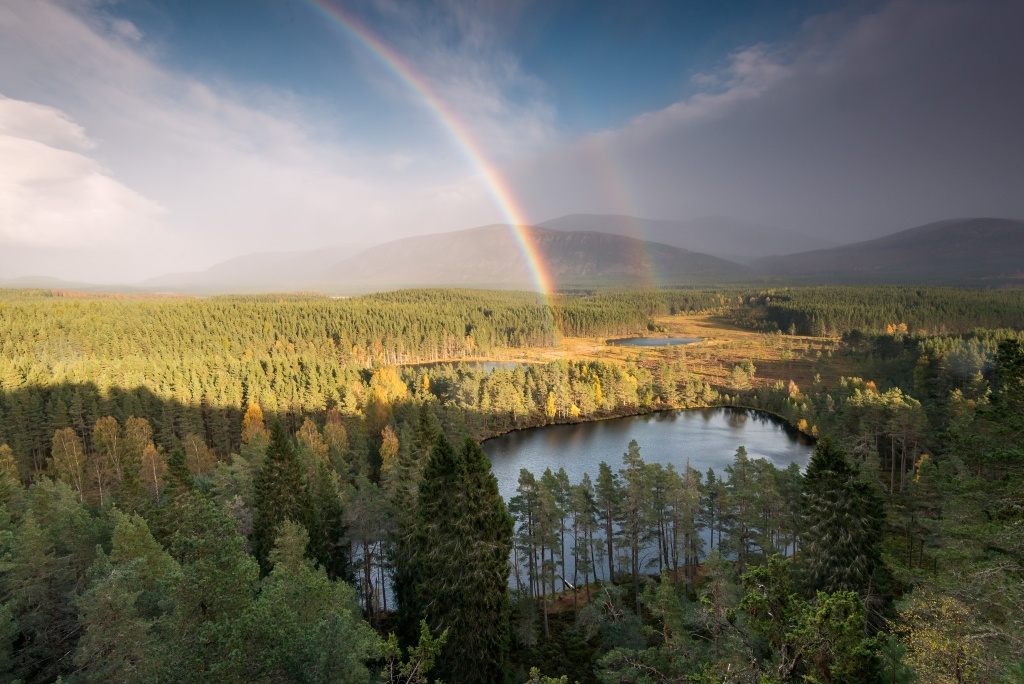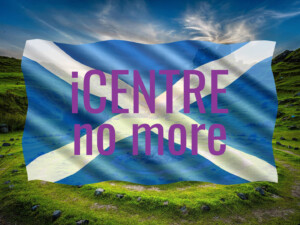Why VisitScotland declared a climate emergency & what it means for tourism

As has been widely reported in both industry and mainstream media, VisitScotland has joined other travel & tourism organisations in “declaring a climate emergency”. In this “Good Tourism” Insight, trends strategist Chris Greenwood shares the early developments of the Scottish national tourism board’s emergency response and its implications for stakeholders.
As we look ahead to whatever the future might hold for our tourism and events industry, we reflect on what we can do to make sure we build back better. With the tourism industry facing huge challenges due to the pandemic, our plans for the next year and beyond recognise the importance of balancing necessary business survival with a sustainable and responsible recovery. It’s important we are at the forefront of this positive contribution tourism can make, in line with the national tourism strategy, Scotland Outlook 2030, ambition for responsible growth.
This year will see Glasgow, Scotland’s largest city, host COP26. As a significant global event and the international response to the climate emergency, it’s important Scotland continues to accelerate its own activity in addressing climate change. We recognise tourism is not exempt from this, despite the immense challenges the industry faces due to the coronavirus pandemic.
That’s why, last November, with one year to go until this important event, VisitScotland became the first national tourism organisation to join the Tourism Declares initiative. Joining with our industry partners, Wild Scotland and Sail Scotland, we’ve published our responsible tourism plans and commitment to addressing climate emergency.
We joined a growing list of over 100 travel groups, businesses and individuals who have declared under the banner Tourism Declares a Climate Emergency, an initiative committed to coming together to find solutions to the climate crisis. We have committed to work with the sector to encourage a responsible tourism approach for a sustainable future, which will be especially important as it recovers from COVID-19. It is about recognising the impact of our industry in the climate change discussion and, in part, seeking to future-proof the sector.
We are looking forward to working with Tourism Declares and our fellow signatories to not only share best practice and ideas, but also further develop guidance and support for destinations, as well as businesses such as accommodation providers and tour operators, on how to take effective action on climate change.
In addition, there are a range of activities we are planning across different areas, such as:
Low-carbon transport
Our plans include a long-term commitment to the increased promotion of low-carbon and environmentally-friendly forms of transport – such as public transport, electric cars and bikes, and walking and cycling, as well as maximising the transformational benefits of hosting the UCI Cycling World Championships in 2023.
Green industry practices
There are several other pieces of activity to support responsible development already underway at VisitScotland. These include advice for tourism and events businesses through the industry engagement programme, such as promoting low carbon growth through green tourism practices (e.g. energy efficiency, promoting low carbon transport, reducing food waste and sourcing quality local food and drink). Meanwhile our themed years programme, Scotland’s Year of Coasts and Waters 2021, encourages responsible engagement and participation, including encouraging sustainable event operations.
Visitor management
We’ll be developing our work on visitor management, which has been ongoing; particularly following the first national COVID-19 lockdown. Key to implementing a responsible and sustainable tourism destination is the management and implementation of regional and seasonal spread. This will minimise the pressure seen through overtourism and support the visitor economy and communities through year-round income and job retention.
In addition to this work, we are looking at ways to evaluate the overall value of domestic and international visitors in terms of financial as well as environmental and social impact, to ensure we are targeting markets and visitors aligned to our overall vision.
Destination infrastructure
The ongoing distribution of the Rural Tourism Infrastructure Fund, created by the Scottish Government, provides extra funding for infrastructure projects to alleviate pressure points and support responsible tourism practices, including for example, funding for electric vehicle charge points and Changing Places’ accessible toilets.
Relationships & collaboration
We’ll seek to strengthen existing relationships with relevant partners, such as Zero Waste Scotland, Energy Saving Trust, Green Tourism, Keep Scotland Beautiful, Transport Scotland, and Sustrans to enhance knowledge and understanding of the challenges and opportunities to tackle climate change.
National target
While collaboration is important, we also want to make sure that our own house is in order which is why we are committed to achieving Scotland’s ambitious target of NetZero green-house gasses by 2045, with progress reported annually.
These are incredibly challenging times for businesses across the country and as we navigate through the pandemic our actions are underpinned by the need for a responsible recovery. The declarations of our industry partners Wild Scotland and Sail Scotland, and most recently Keep Scotland Beautiful, and activity holidays specialists Wilderness Scotland before them, represent the strength of collective feeling that exists across the industry to rebuild responsibly and protect our communities and natural environment for generations to come.
What do you think? Share a short anecdote or comment below. Or write a deeper “GT” Insight. The “Good Tourism” Blog welcomes diversity of opinion and perspective about travel & tourism because travel & tourism is everyone’s business.
Featured image (top of post): Uath Lochans, Kingussie, Scotland. By VisitScotland / Damian Shields.
About the author

Chris Greenwood is Senior Insight Manager at VisitScotland, helping tourism businesses, policy makers, and stakeholders understand the future visitor economy. A postgraduate of Durham University, Chris has worked for more than 20 years in data research and analytics across several industry sectors and has authored numerous publications on tourism topics such as exchange rates, food tourism and scenario planning. Increasingly involved in understanding and interpreting the role and impact of a responsible visitor economy, his background in earth sciences and analytics provides a sound foundation for understanding the systems that influence sustainable tourism.





